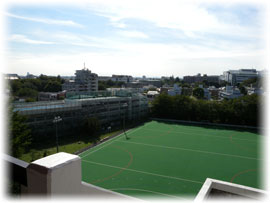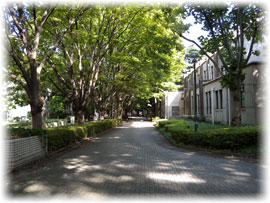ABOUT

International Relations (IR) is a relatively new field of study in Japan, having been introduced to this country only after the Second World War. Although IR has become an essential field of study in Japan today, our program was the first one in this country to recognize the importance of IR as a research and teaching field.
The graduate programs in International Relations offered have been an integral component of research and education at the Komaba campus. Strong publication records of our faculty and outstanding placement records of graduating students in many leading research institutions worldwide for over half a century are recognized as tradition of excellence second to none in this country.
Although the graduate programs in IR are offered at the Department of Advanced Social and International Studies (at the Graduate School of Arts and Sciences) today, the programs officially was first offered at the Department of International Relations, which was part of the University of Tokyo’s Graduate School of Social Science. The programs were later transferred to the Graduate School of Arts and Sciences with the latter’s inauguration in 1983. In 1996, the Graduate School of Arts and Sciences was expanded to include the Department of Interdisciplinary Social Sciences. Ever since then, the graduate programs in IR have been offered alongside the graduate programs in Interdisciplinary Social Sciences, under the Graduate School of Arts and Sciences.
PREREQUISITES AND REQUIRMENTS IN THE MASTERS PROGRAM

Students must have successfully completed the courses equivalent to those offered at the senior division of the Department of Social and International Relations at the College of Arts and Sciences. This includes courses in all three fields of International Politics, International Law and International Economics. Masters program in IR has the follows requirements.
- International Relations field seminar: Students in their first year are required to attend seminars in two fields: one in their primary field of study and another in related field. These seminars are designed to deepen and broaden the understanding of students’ primary field of study.
- Supervised readings: Students in their first year are also expected to master a list of compulsory readings, and to submit a comprehensive reports at the end of the academic year. A reading list (comprising about 10 books or journal articles) will be provided for each of the main field of study. Students are to choose any two fields. Each field of study are supervised by our faculty.
- Master’s thesis: The master’s thesis is a crucial requirement at our department. Theses are expected to be of publishable quality in refereed journals with minor revisions, if necessary. Titles of Masters theses which have been submitted to our department in the past can be viewed here (in Japanese).
REQUIREMENTS IN THE DOCTORAL PROGRAM
- Thesis committee: While being liberal in nature, the Doctoral program in IR is also designed in a way that our doctoral candidates receive close guidance during the entire process of writing their theses. For each Ph.D. candidate, a thesis committee comprising of 3 academic supervisors will be formed. The thesis committee will oversee the student’s progress from his or her proposal colloquium until the final colloquium.
- Graduate colloquium: The primary objective of the graduate colloquium is to provide students with an opportunity to present progress of their research to fellow students and faculty members for academic scrutiny and obtain constructive feedback. Each doctoral candidate is to successfully present three colloquiums in total. At the proposal colloquium, students who have just embarked on their research at the doctoral level are expected to present the motivations and timetable of their research. At the research colloquium, students who passed the proposal colloquium are expected to present their preliminary result, and receive feedback by participating fellow students and faculty. At the final colloquium, students present polished results of their research, and receive detailed evaluation of the work presented for publication and for submission to the department for doctoral degree.
